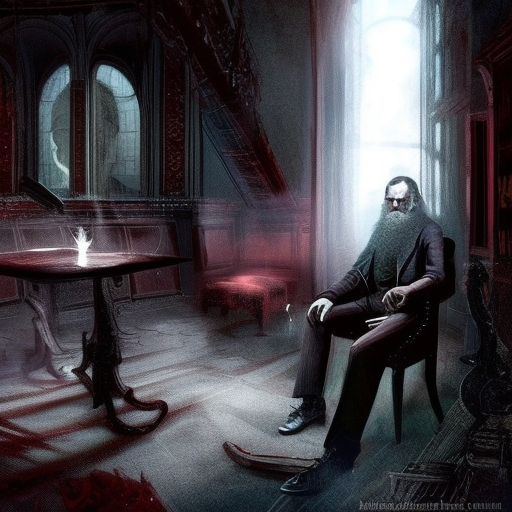One-line Summary:
“The Idiot” by Fyodor Dostoevsky is a complex and thought-provoking novel that explores the themes of innocence, morality, and the complexities of human nature.
The Innocent Fool:
“The Idiot” follows the story of Prince Myshkin, a young man who returns to Russia after spending several years in a Swiss sanatorium. Myshkin is known as “the idiot” due to his childlike innocence and naivety. Throughout the novel, Dostoevsky uses Myshkin’s character to explore the concept of the “holy fool” and the clash between innocence and the corrupt society.
Myshkin’s arrival in St. Petersburg introduces him to a variety of characters, each representing different aspects of society. He becomes entangled in a love triangle between Aglaya, a beautiful and impulsive young woman, and Nastasya Filippovna, a complex and troubled woman with a dark past. As the story unfolds, Myshkin’s innocence and genuine nature clash with the greed, jealousy, and manipulation of those around him.
The Complexity of Human Nature:
Dostoevsky delves deep into the complexities of human nature through the characters in “The Idiot.” Each character is flawed and struggles with their own inner demons. Myshkin’s purity and honesty are both admired and exploited by those around him. He is seen as a threat to the established social order, as his innocence exposes the hypocrisy and corruption of society.
The other characters in the novel, such as Rogozhin, a wealthy and tormented man, and General Yepanchin, a proud and ambitious aristocrat, also grapple with their own inner conflicts. Dostoevsky skillfully portrays the human condition, showing the dark and destructive aspects of human nature alongside moments of compassion and redemption.
Morality and Ethics:
Morality and ethics are central themes in “The Idiot.” Dostoevsky raises questions about the nature of goodness and the consequences of living a moral life in a corrupt society. Myshkin, with his unwavering moral compass, is seen as an anomaly and is often misunderstood by those around him.
Throughout the novel, Dostoevsky explores the tension between individual morality and societal norms. The characters are constantly faced with moral dilemmas and are forced to confront their own values and beliefs. The choices they make have far-reaching consequences, highlighting the complexities of moral decision-making.
Key Takeaways:
- “The Idiot” explores the clash between innocence and corruption in society.
- The novel delves into the complexities of human nature, portraying characters with both dark and redeeming qualities.
- Dostoevsky raises questions about morality and ethics, challenging societal norms and exploring the consequences of living a moral life.
“Beauty will save the world.”
– Fyodor Dostoevsky, The Idiot
In conclusion, “The Idiot” is a profound and thought-provoking novel that delves into the complexities of human nature, morality, and the clash between innocence and corruption. Dostoevsky’s exploration of these themes, along with his richly developed characters, makes “The Idiot” a timeless literary masterpiece.












